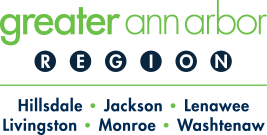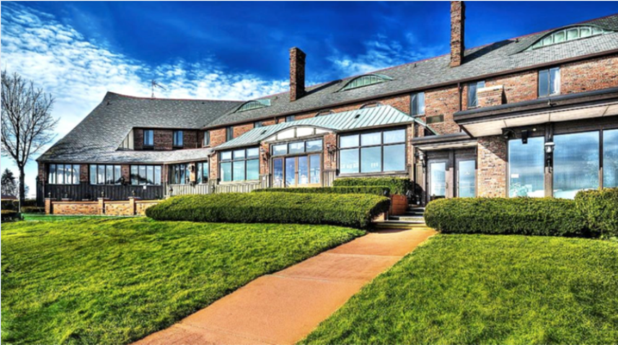Here are a few recommendations from our friends at Lean & Green Michigan.
Accounting for 32 percent of total energy
consumption, commercial buildings consume a great amount of energy.
Subsequently, significant energy consumption also leads to significant energy
waste. According to the EPA, on average, 30 percent of all energy consumed at
commercial properties is wasted. But energy waste is not just simply
inefficient, it also takes a toll on wallets.
Making buildings more energy efficient makes sense. Energy upgrades help property owners save on their utility bills, makes for more comfortable buildings, increases property value and helps the environment. However, the biggest obstacle standing in the way of creating more energy efficient buildings is the upfront cost. That’s where PACE (Property Assessed Clean Energy) financing comes in.
What is PACE financing?
PACE is a long-term financing mechanism
available to commercial property owners to pay for energy efficiency, water
efficiency, and renewable energy upgrades. Upon receiving 100% financing to pay
for energy upgrades to their facilities, property owners then pay back their
PACE loan through a special assessment on their property taxes, via their
energy savings.
Lean & Green Michigan (LAGM) is the
statewide administrator for PACE financing. Currently partnering with 40 local
governments across Michigan — covering over 70 percent of the state’s
population — the LAGM PACE program is helping commercial property owners save
on their energy bills. Check out the LAGM website for a map
of all currently participating Michigan PACE jurisdictions.
While a relatively young market in Michigan,
PACE was first introduced over ten years ago in Berkeley, California. Berkley
city officials saw PACE as a solution to help their constituents save money on
their utility bills during the Great Recession, while also helping the city
meet its climate action goals. Since then, PACE programs have become available
in 36 states and Washington D.C. Check out the PACENation website to learn more.
PACE in Michigan
Since the closing of the first PACE project in 2015, LAGM has completed 16 total PACE projects across Michigan. To get an idea of what these PACE projects look like, check out the featured projects portion of LAGM’s website, where you can find case studies on properties that are utilizing PACE to pay for energy upgrades to their facilities. Here are a few examples:
The St. Clair Inn (Port Huron)

Last year, LAGM closed on the largest PACE project in Michigan. The PACE project at the St. Clair Inn, located in Port Huron, received over $5.5 million in PACE financing. Funding energy efficiency upgrades such as LED lights, HVAC, windows and water conservation measures, the owner of the property is expected to recoup this investment and see a net 20-year savings of over $1,946,000.
513-415 Iona Street (Lansing)

The project at 513-515 Ionia Street in Lansing received over $247,000 in PACE financing for energy efficiency upgrades such as: solar PV, CHP power, electric vehicle charging stations and LED lighting. The owner if the property is expected to recoup this investment and see a net 20-year savings of over $267,450.
The Whitney Restaurant(Detroit)

The project at The Whitney Restaurant received over $863,000 for energy upgrades such as building controls, efficient kitchen ranges, LED lighting, and HVAC. The owner of this property is expected to recoup this investment and see a net 20-year savings of over $2,097,000.
Qualified Properties
The Michigan PACE market is for commercial properties only. From retrofits, gut rehabs, new construction projects, and energy refinancing, PACE is available for properties such as:
- Commercial & Industrial: hotels, hospitals, restaurants, office buildings & more.
- Multifamily housing: both market-rate and low-income apartment buildings.
- Agricultural: farms, wineries & more.
- Nonprofits: houses of worship, private schools, cooperatives & more.
Energy
Conservation Measures
One of the best things about PACE financing is
the broad array of qualified energy conservation measures that can be included
in a PACE project. From energy efficiency, renewable energy and water
conservation measures; if it can help a property owner save on their utility
bill, chances are it can be included in a PACE deal. Examples of qualified
energy conservation measures include:
- Energy Efficiency: lighting, HVAC, windows, insulation, roofing, caulking & more
- Water efficiency: stormwater recapture, low-flow toilets/sinks/ showerheads, greywater systems & more.
- Renewables: solar energy, wind energy.
Benefits
of PACE
There are many unique features of PACE that separate this form of “green financing” apart from other financing mechanisms. Benefits of PACE financing include:
- Long-term financing (up to 25 years)
- 100% financing — no upfront costs
- Immediate positive cash flow
- Energy savings guaranteed for projects above $250,000
- Fixed interest rates
- Non-recourse loans that run with the property
- Great sustainability/environmental PR
Learn
more
While 2018 brought a game-changing year for clean energy financing in Michigan, LAGM expects 2019 and beyond to show no signs of slowing down.
To learn more about PACE financing, contact the program administrator at info@leanandgreenmi.com or by phone at 313-444-1474.
The post PACE Financing is Saving Commercial Property Owners Serious Money on Their Energy Bills (while helping the environment too) appeared first on Ann Arbor SPARK.
Source: SPARK







